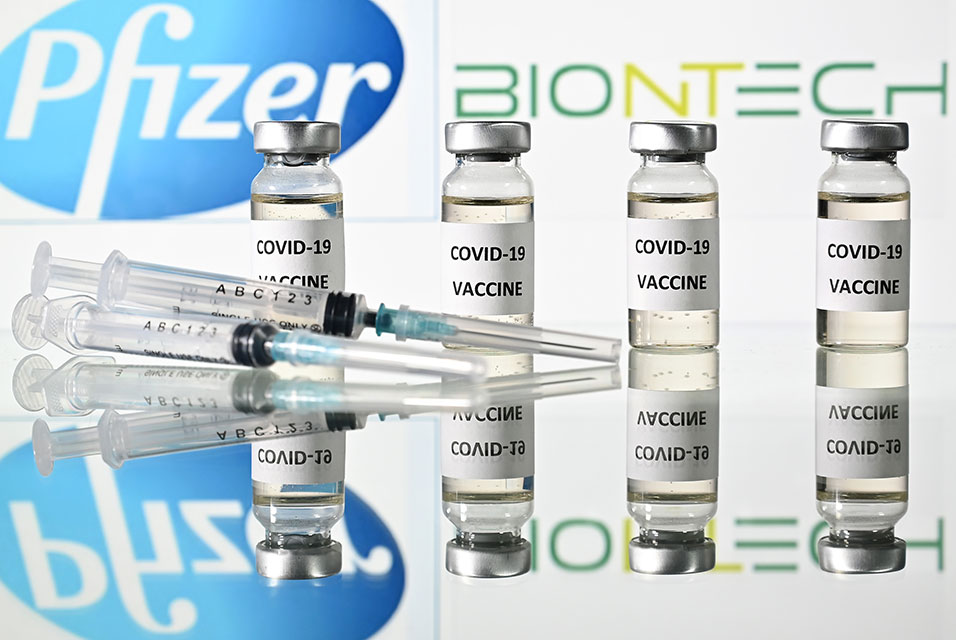LONDON (AFP).- The British government on Friday said it has asked its independent medicines regulator to study Pfizer/BioNTech's coronavirus vaccine with a view to an imminent roll-out.
The announcement came after the pharma giant and its German partner said they will ask US regulators for emergency use authorisation for the vaccine in what would be a major step towards fighting back against the global pandemic.
In another potential boost, a UK study indicated individuals infected with coronavirus are unlikely to catch the illness again for at least six months.
Health Secretary Matt Hancock said the government had formally asked the Medicines and Healthcare products Regulatory Agency to assess the Pfizer/BioNTech vaccine for its suitability.
If approval was given, the vaccine would be free "at the point of delivery" across the UK from the country's state-run National Health Service (NHS).
The service would be ready to start a mass vaccination programme next month if the MHRA gave its agreement on the jab, he told a news conference.
Britain -- one of the world's most-affected countries by the outbreak with more than 54,000 deaths from 1.4 million cases -- has ordered 40 million doses.
Short-term protection
Researchers at the University of Oxford said its large-scale study into Covid-19 re-infection had produced promising results.
The study was launched after observations from healthcare professionals that re-infection was relatively rare.
"We can be confident that, at least in the short term, most people who get Covid-19 won't get it again," said Oxford University Professor David Eyre, one of the authors.
The authors highlighted they had not yet gathered enough data to make a judgement on re-infection after six months.
However, the ongoing study has an end goal of verifying how long protection lasts in total.
The director of infection prevention and control at study partners Oxford University Hospitals (OUH), Katie Jeffery, called the finding "exciting".
It indicated "that infection with the virus provides at least short-term protection from re-infection", she added.
Antibody response
US biotech firm Moderna announced this week its vaccine candidate was nearly 95 percent effective in a trial -- a week after similar results were announced by Pfizer and BioNTech.
The World Health Organization (WHO) welcomed the Oxford study saying the findings extended its understanding of coronavirus protection.
"We really commend the researchers for doing those studies," WHO emergencies director Michael Ryan told reporters in Geneva, explaining the findings had delivered the "best data".
Ryan added the antibody response detailed in the research gave "hope for longer periods of protection" from vaccine candidates.
The Oxford study into re-infection drew on data from regular coronavirus testing of 12,180 health care workers at OUH over a period of 30 weeks.
It found that none of the 1,246 staff with coronavirus antibodies developed a symptomatic infection.
Three members of staff with antibodies did test positive for the virus that causes Covid-19 but were all well and did not develop symptoms.
The WHO said it is working with 50 countries where studies on antibody responses in different groups, such as in the general population or among healthcare workers, were taking place.
The UN health body said it was pooling those results to give a broader picture of how the pandemic was developing.
© Agence France-Presse










